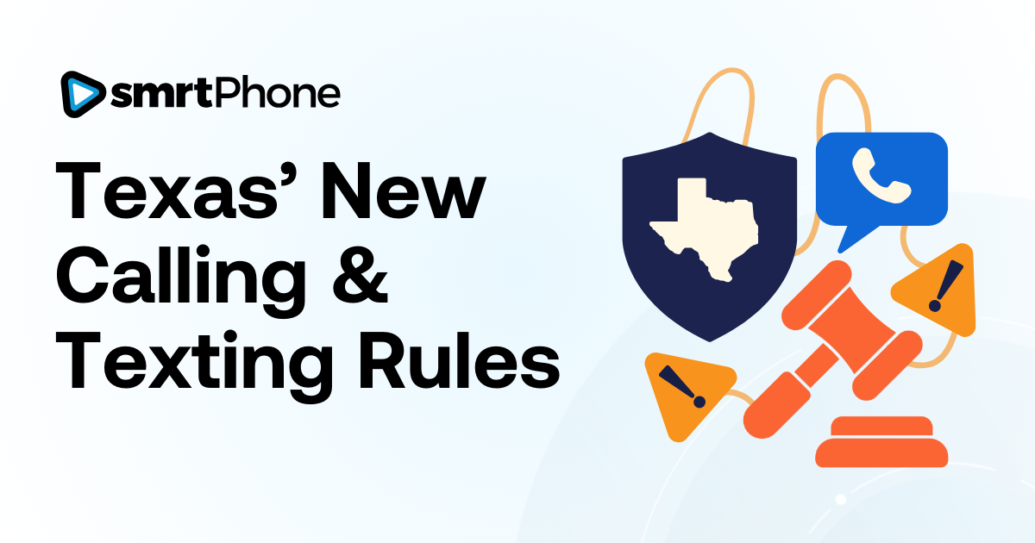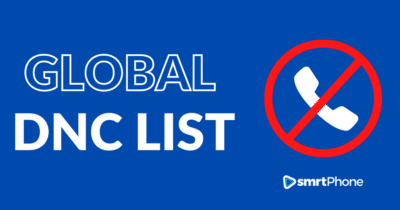If you run your business in Texas or reach leads who live there, new rules are about to change the way you make calls and send texts.
The Texas Legislature recently passed Senate Bill 140 (2025), which tightens regulations around telephone solicitation. This means businesses that rely on calling and texting leads need to pay closer attention to how, when, and to whom they’re reaching out.
👉 You can read the full bill summary here: Texas Senate Bill 140 – Registration and Compliance Requirements.
What Counts as Solicitation?
Under the new law, “telephone solicitation” includes:
- Any phone call or text message that promotes or sells a product, service, or investment.
- Messages designed to encourage the recipient to buy, lease, rent, or consider an offer.
- Calls/texts made with the intent of generating sales leads.
Even if you’re not closing a deal over the phone, if your message is meant to promote or start a sales conversation, it counts as solicitation.
When Can You Call or Text?
Texas now requires businesses to only contact residents during specific hours based on the recipients’ local time:
- Monday-Saturday: 9:00 AM to 9:00 PM
- Sunday: 12:00 noon to 9:00 PM
This means no outreach before noon on Sundays and no calls or texts outside the 9:00 PM cutoff any day of the week. These rules apply to both live calls and automated dialing/text campaigns.
Key Changes to Know
1. Registration Requirement
Businesses that make sales calls or send sales texts to Texas residents must register with the Texas Secretary of State (SOS) before conducting outreach. This includes real estate investors, wholesalers, and any company that uses outbound dialing or texting to generate leads.
To register under Texas SB 140, businesses must:
- File Form 3401 (Application for Registration) annually with the Texas SOS .
- Pay a $200 annual registration fee.
- Obtain a $10,000 surety bond (or provide a letter of credit/certificate of deposit). A surety bond typically costs around $250 for a three-year bond.
- File Form 3406 (Disclosure Statement).
- File Form 3404 to specify your security method (e.g., surety bond).
- Appoint the Secretary of State as your Agent of Service (legal contact point).
- Submit quarterly reports listing your salespersons to the SOS.
👉 How to obtain the surety bond:
- Determine if you need to register (Check the list of exemptions for registration). If unsure, it’s safer to register.
- Complete and notarize Forms 3401, 3406, and 3404.
- Submit the notarized forms to the Texas Secretary of State.
- Coordinate with a surety provider to issue the $10,000 bond.
- Pay the bond premium (the cost to keep the bond in place).
- Fulfill other requirements, including the $200 registration fee and appointment of the SOS as agent.
Exemptions from Registration
Some businesses are exempt from registration, including:
- Public companies registered with the SEC.
- Brick-and-mortar retailers, where sales are completed at a physical location.
- Licensed professionals (e.g., insurance agents, real estate brokers) soliciting within the scope of their license.
- Nonprofit organizations soliciting donations.
- Sellers of food or perishable products delivered within 30 days.
- Businesses contacting existing customers with ongoing or prior transactions.
⚠️ Even if exempt from registration, you must still follow time restrictions and deceptive practice rules.
2. Equal Treatment of Calls & Texts
The rules cover both voice calls and text messages, so your SMS campaigns are just as regulated as outbound dialing.
3. Stronger Enforcement
Penalties for non-compliance are much more serious under Texas law.
- Civil penalties include $5,000 per violation or $25,000 per violation for willful violations.
- Each call or text is treated as a separate violation.
- Non-compliance also constitutes a Class A misdemeanor, punishable by up to one year in jail and a $4,000 fine.
- On top of that, violations can trigger DTPA (Deceptive Trade Practices Act) lawsuits, which allow consumers to sue directly. Businesses may face treble damages (triple the actual damages), attorney’s fees, and repeated claims.
- Importantly, it’s not just regulators who can act. Consumers themselves can file lawsuits, creating significant litigation risk.
In short: failing to comply doesn’t just risk fines – it opens the door to costly lawsuits and even criminal penalties.
How This Impacts smrtPhone Customers
If you’re using smrtPhone to reach leads in Texas, SB 140 means a few important changes to how you run your outreach. Here’s what you need to keep in mind, and the best practices to follow to stay compliant:
- Confirm registration requirements. You may need to register with the Texas Secretary of State before continuing outbound calls or texts. When in doubt, register.
- Treat texts like calls. Any promotional SMS is regulated the same way as a phone call. Update your texting strategy accordingly.
- Respect calling hours. Rules apply based on the recipient’s local time, so be sure your smrtPhone account is set correctly. You can easily update your time zone settings here.
- Build strong consent flows. Always use clear opt-in processes and honor opt-outs promptly in every campaign.
- Keep thorough records. Store registration certificates, consent forms, opt-out requests, and outreach logs. smrtPhone reporting makes this easier.
- Consult legal counsel. SB 140 works alongside federal laws like the TCPA. A legal review helps ensure you’re fully covered.
- Stay proactive. The fines for non-compliance are steep – and each text or call counts separately. Compliance is always cheaper than penalties.
Texas Senate Bill 140 is designed to increase transparency and accountability in how businesses communicate with residents. For smrtPhone customers, this means being proactive: register if required, respect the rules, and use your tools wisely to stay compliant.
Effective Date Alert: SB 140 took effect on September 1, 2025, so if you’re making outbound calls or texts to Texas residents-or are based in Texas-your business must be fully compliant before that date.
Need Help Staying Compliant?
At smrtPhone, we know compliance can feel complicated, but you don’t have to figure it out alone.
- Visit the Trust Center to learn more about compliance best practices.
- Reach out to our Support team anytime for guidance on setting up your account correctly.
✅ Stay compliant. Protect your business. Keep your outreach running smoothly.
Disclaimer: The information provided in this blog post is for general informational purposes only and should not be construed as legal advice. Laws and regulations may vary, and the applicability of this information to your specific situation may differ. Always consult with a qualified attorney before making decisions that could have legal consequences.






